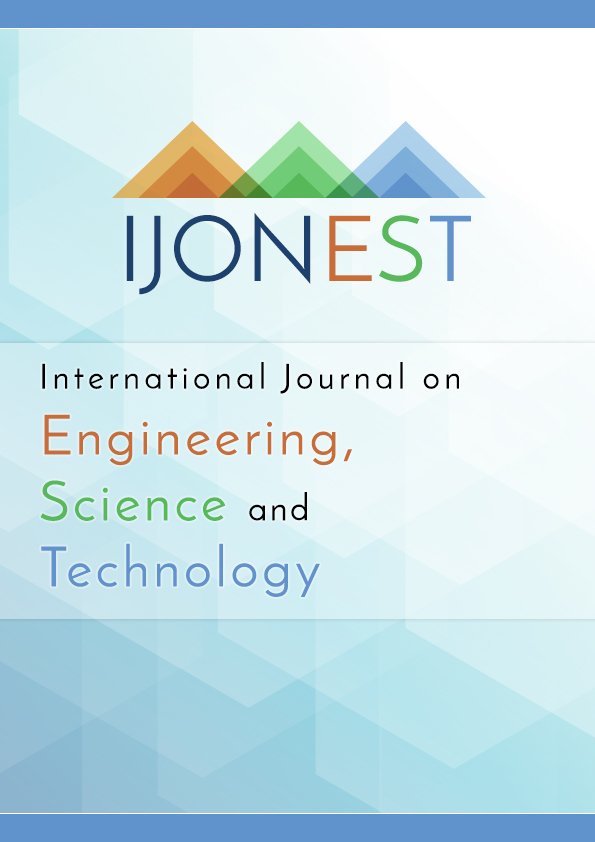Improving Engineering Education through Utilization of Virtual Reality
DOI:
https://doi.org/10.46328/ijonest.199Keywords:
Virtual Reality, Simulation Modeling, Engineering EducationAbstract
Traditional methods (TM) for delivering engineering education are not aligned with rapid technological development. Engineering basic workshops as a fundamental course for engineering students are commonly provided through traditional education methods and depend mainly on understanding both the theoretical concepts and practical tasks. Simulation as advanced technology is trending where applications of virtual reality (VR) can be used as an effective teaching tool in education and boost the students’ engagement in the courses. This study focuses on improving the traditional learning method used in mechanical engineering basic workshops by utilizing VR. A time study was conducted for both traditional and VR methods to identify the time required to complete all tasks. A facility layout redesign for the current workshop lab was proposed along with a direct cost study. It was found that the use of VR allowed students to understand the course experiments, achieved significant improvement in students’ performance, and enhanced the learning experience for engineering students.References
Abulrub, A.-H. G., Attridge, A., & Williams, M. A. (2011). Virtual reality in engineering education: The future of creative learning. International Journal of Emerging Technologies in Learning, 6(4), 1766-1781.
Alhalabi, W. (2016). Virtual reality systems enhance students’ achievements in engineering education. Behaviour & Information Technology, 35(11), 919–925.
Ewert, D., Schuster, K., Johansson, D., Schilberg, D., & Jeschke, S. (2013). Intensifying learner's experience by incorporating the virtual theatre into engineering education. In 2013 IEEE Global Engineering Education Conference (EDUCON) (207-212). IEEE.
Freina, L., & Ott, M. (2015). A literature review on immersive virtual reality in education: state of the art and perspectives. 11th International Conference on eLearning and Software for Education (eLSE).
Gartner. (2023). Hype Cycle for Emerging Technologies, 2023. Retrieved from https://www.gartner.com/en/documents/4597499
Han, Y. (2023). Virtual Reality in Engineering Education. In SHS Web of Conferences,157, 2001, EDP Sciences.
Hu, Y., Liu, X., & Xie, X. (2022). The effectiveness of virtual reality in engineering education: A meta-analysis. Computers in Human Behavior, 128, 107218
Kanawaty, George, ed. (1992). Introduction to work study. International Labour Organization.
Lanzo, J. A., Valentine, A., Sohel, F., Yapp, A. Y., Muparadzi, K. C., & Abdelmalek, M. (2020). A review of the uses of virtual reality in engineering education. Computer Applications in Engineering Education, 28(3), 748-763.
Li, W., Chen, Z., & Zhang, J. (2021). The impact of virtual reality on student learning outcomes in engineering thermodynamics. Journal of Educational Computing Research, 59(1), 167-188.
Oje, A. V., Hunsu, N. J., & May, D. (2023). Virtual reality assisted engineering education: A multimedia learning perspective. Computers & Education: X Reality, 3, 100033.
Salah, B., Abidi, M. H., Mian, S. H., Krid, M., Alkhalefah, H., & Abdo, A. (2019). Virtual reality-based engineering education to enhance manufacturing sustainability in industry 4.0. Sustainability, 11(5), 1477.
Shih, L. S., Hwang, F. K., Lin, S. W., & Hung, C. W. (2020). The impact of virtual reality on student learning outcomes in engineering design. British Journal of Educational Technology, 51(5), 1458-1475.
Wang, Z., Li, Y., Wu, H., & Zhang, H. (2019). The impact of virtual reality on student learning outcomes in engineering manufacturing. British Journal of Educational Technology, 50(3), 1384-1399
Win, K. Y., Chin, H. C., & Ramli, N. Z. (2018). Virtual reality application in engineering assembly education: A review. Journal of Engineering and Science Research, 17(23), 60042-60051.
Wu, Y., Liu, Y., & Hu, Y. (2022). The impact of virtual reality on student engagement and learning outcomes in engineering mechanics. Computers & Education, 189, 104485
Zavalani, S., & Spahiu, A. (2012). Use curiosity for virtual reality “as a hook” in the engineering education. In 2012 IEEE Global Engineering Education Conference (EDUCON) (1–5). IEEE
Downloads
Published
Issue
Section
License
Articles may be used for research, teaching, and private study purposes. Authors alone are responsible for the contents of their articles. The journal owns the copyright of the articles. The publisher shall not be liable for any loss, actions, claims, proceedings, demand, or costs or damages whatsoever or howsoever caused arising directly or indirectly in connection with or arising out of the use of the research material.
The author(s) of a manuscript agree that if the manuscript is accepted for publication in the International Journal on Engineering, Science and Technology (IJonEST), the published article will be copyrighted using a Creative Commons “Attribution 4.0 International” license. This license allows others to freely copy, distribute, and display the copyrighted work, and derivative works based upon it, under certain specified conditions.
Authors are responsible for obtaining written permission to include any images or artwork for which they do not hold copyright in their articles, or to adapt any such images or artwork for inclusion in their articles. The copyright holder must be made explicitly aware that the image(s) or artwork will be made freely available online as part of the article under a Creative Commons “Attribution 4.0 International” license.

This work is licensed under a Creative Commons Attribution-NonCommercial-ShareAlike 4.0 International License.





